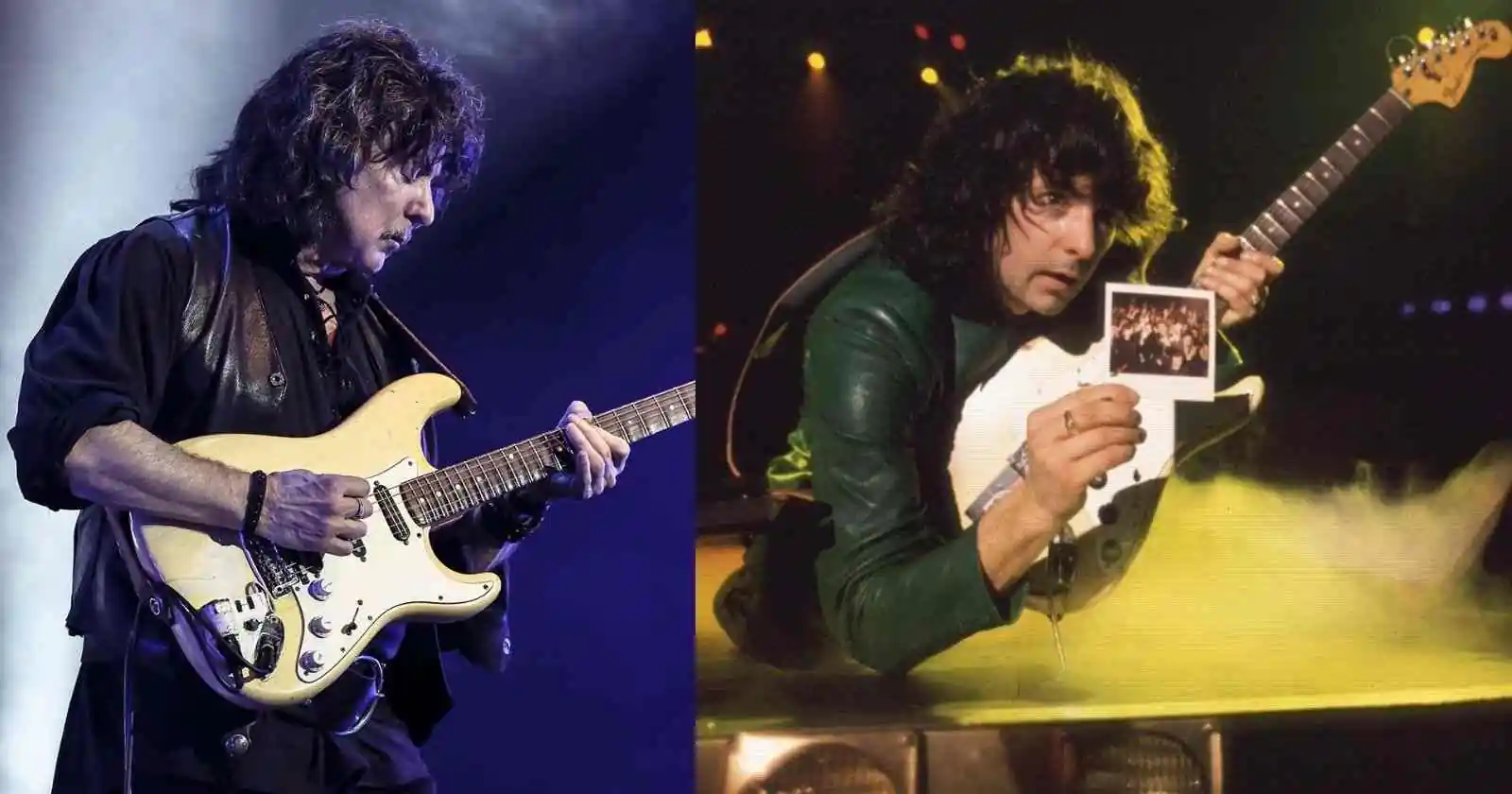Ritchie Blackmore started his career when he was only a teenager in 1960 working as a session player for Joe Meek’s music productions, besides playing with several local bands. But of course, he would first achieve fame as a member of Deep Purple, which became one of the most influential bands in the world in the early 70s. He also became one of the few artists in the world who were able to continue with their success after leaving a famous group, since he formed Rainbow in 1975, that also became one of the most important Hard Rock bands of all time.
It was in the 70s when he really consolidated himself as a true guitar hero, not only because of his incredible riffs and guitar solos, but also for his stage presence. He also is remembered for being a really sincere person and he always gave his true opinion on his peers. He even mentioned which guitarist he thought was overrated back in the 70s.
The guitarist that Ritchie Blackmore said was overrated in the 70s
The first wave of really huge Rock bands formed in the United Kingdom happened in the 60s with the so-called British Invasion. They took over the world showing what could be done with Rock and Roll music and the Blues. Deep Purple really came out a few years later trying to figure out what kind of sound they would have. They would only find themselves in 1970 with the release of their praised album “Deep Purple In Rock” (1970). With that record they realized they should be a Hard Rock group.
In the early 70s, as the music was changing, the bands that appeared in the 60s were also trying to reinvent their sound and experiment. One of them was The Who, that released in the beginning of that decade some of their most important albums like “Who’s Next” (1971). Although they had millions of fans worldwide and were praised by many critics, Blackmore wasn’t a huge fan of the band’s guitarist Pete Townshend.
He revealed that in an interview with Martin K. Webb back in 1973, saying that Townhsend was overrated. He agreed with the interviewer saying that The Who’s guitarist, sometimes singer and main songwriter was the first one to use feedback. However, he also said that he wasn’t a good guitarist although he thinks he was good “at his chord scene”.
“Pete Townshend was definitely the first (To use feedback). But not being that good a guitarist, he used to just sort of crash chords and let the guitar feedback. He didn’t get into twiddling with the dials on the amplifier until much later.”
He continued:
“He’s overrated in England. But at the same time you find a lot of people like Jeff Beck and Hendrix getting credit for things he started. Townshend was the first to break his guitar. He was the first to do a lot of things. He’s very good at his chord scene too,” Ritchie Blackmore said.
The feedback is a phenomenon that occurs when the sound produced by the amplified strings of a guitar is picked up by the guitar’s pickups and re-amplified. That creates what is called a “loop of sound”.
In the same conversation, Blackmore also criticized Townshend for jumping around the stage. He was asked by Martin why he didn’t like to “leap” around the stage. To explain he used a few famous artists as examples.
“I like leaping around on stage as long as it’s done with class. Like Free. They’re the best band in England. Paul Rodgers is a good singer and a brilliant mover. None of this jumping up in the air and doing the splits and all that. He just moves with the music. Not like Pete Townshend who’s gotten to the point that he waits until the photographers are well-aimed before he leaps. He’s not very spontaneous,” Ritchie Blackmore said.
Pete Townshend said he would never like to be in a guitar battle with players like Blackmore
It isn’t easy to label Pete Townshend’s role in The Who as only a guitarist, since he is the main songwriter in the band and he mainly is a rhythm guitar player. So he can not always be put in the same box as other famous guitar heroes who are known for elaborate and long guitar solos.
Townshend recognizes that as he said in an interview with Sound International magazine in 1980 that he would never like to be in a guitar battle with artists like Ritchie Blackmore. He was asked if it was important to him to have a technique like Jeff Beck, for example. He answered giving Blackmore as one of the examples.
“Not really. Sometimes in the past it’s made me a bit catty towards that kind of player. Catty through a certain amount of jealousy I suppose. I suppose I’ve never respected them that greatly. There are only sort of odd records that Beck and Page have come up with that I really liked.”
He continued:
“And I’ve never invited comparisons to that kind of player. Like I said before, you’ve got your Erics and Jimi Hendrixes, Jimmy Page, Blackmore and Jeff. People like that who are out there doing that particular thing.”
“But I feel myself in a slightly different place. And even today I would never want to get into a guitar battle with people of that caliber. Because for me, ultimately, the joy I would get from expressing myself through a solo would never be as great and would never be as fulfilling as the joy I get from expressing myself through a song,” Pete Townshend said.

